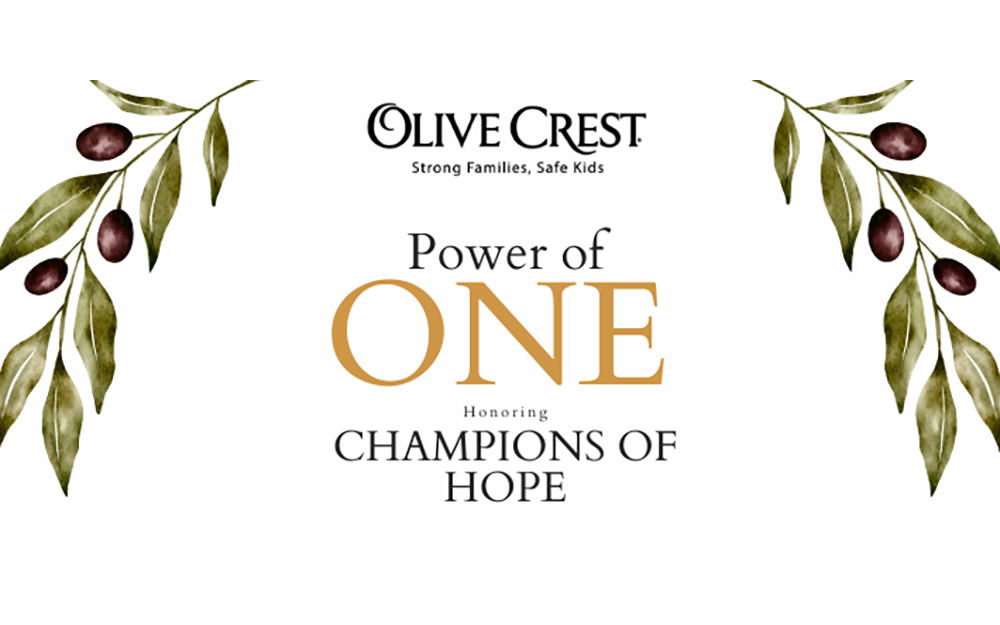Tolerance and Sexual Identity
Book Review by Heidi Simmons
——————-
In One Person
A Novel
John Irving
——————–
It is very natural and normal for those of us who live in the Coachella Valley to have a community of friends, neighbors or co-workers who are lesbian, gay, bisexual or transgender. Imagine though, how horrible it would be to live in North Carolina, where some believe electrified fences should be used to separate the LGBT from the wider community. Awful to think what life as a gay person would be like there.
John Irving’s new novel, In One Person (Simon & Schuster, 425 pages) explores the life of William Abbott, a bisexual man, who recounts his coming of age and confusing sexual identity growing up in a small dysfunctional Vermont town filled with eccentric and controversial characters. It is written as a first person memoir, which begins in the 1950s and spans the decades to today.
Abbott’s story jumps in time and place — Vienna, Madrid, Los Angeles and New York — but is mostly rooted in his Vermont experience at an all boys boarding academy he attended while living on campus with his mother and step-father, the school’s drama teacher. There’s a local theater group, which includes his family and most of the community. His cross-dressing grandfather, uptight aunt, step-dad and his mom all participate regularly in the theatrical productions. There are constant, detailed, literary references from Henrik Ibsen, William Shakespeare, James Baldwin and Thomas Hardy, among others. No surprise, the adult Abbott is a writer.
If you’ve read Irving before, In One Person will seem familiar. Like The World According to Garp, The Cider House Rules and A prayer for Owen Meany, there are similar reoccurring themes: the loss of childhood innocence, being an outsider and abandonment by a father. But unlike Garp, Cider House and Meany, In One Persons lacks an involving story line. The characters are not dimensional or compelling. Abbott’s world is hardly tragic, his sexual suffering and homophobic tormenters seem minimal as he and the town discover he’s gay. In fact, his “alternative lifestyle” unfolds with relative ease.
But gay or not, understanding who we are, is a challenge inherently rife with trouble and trauma. If this were Irving’s account of his own “coming out,” and sexual lifestyle, it would be more interesting. But In One Person is a novel, not anyone’s actual memoir. In interviews, Irving claims it’s not about him or his adult gay son. Irving’s fictional narrative about Abbott’s life, though detailed, is lightweight and lacks credibility, at least to this reader.
Abbott swiftly moves through the decades: There is the conservative old guard of the 50s, he avoids the draft in the 60s because of his homosexual tendencies, he parties in the freewheeling 70s, and sits by the bedside of friends dying of AIDS in the 80s. Abbott doesn’t get involved with gay politics in the 90s and finally comes back to Vermont to teach and make a difference in the lives of those attending the academy. Through Abbott’s life and perspective, Irving gives the reader a summary of recent history and how it has affected LGBT community — an awful and vivid reminder of the horrors of the AIDS epidemic.
There is little humor and big doses of tragedy throughout the years of Abbott’s life. And though he eventually finds his place, there is still a lingering intolerance and hostility toward him and his lifestyle. Too often, Irving is repetitive. It’s as if he needs to constantly remind the reader of the characters and stories that inhabit Abbott’s past. It’s unnecessary, tedious and dilutes the ending.
One of Irving’s themes is stated early on by the town’s librarian, a pivotal character in Abbott’s life. She says, “My dear boy, please don’t put a label on me — don’t make me a category before you get to know me!” Irving tries too hard with the “categories.” Abbott loves men, he love women and he loves transsexuals. It’s as if Irving wants to play all sides while not offending any gender or sub-gender. Amazingly, Abbott talks with a lisping speech impediment and is “light in the loafers.” Cliché or not, it’s contrived.
Abbott says this about his sexuality: “I had already decided that my bisexuality meant I would be categorized as more unreliable than usual by straight women, while at the same time (and for the same reasons) I would never be entirely trusted by gay men.” This is said after his break-up with his transsexual lover!
In an interview, author Irving was asked, “What made you want to write about the subject of tolerance in the LGBT community?” He said, “I think that ‘want’ isn’t the right word; maybe the feeling that I ‘have to,’ or that I ‘should,’ write a certain story is what drove me in this case. I think the ‘other side’ — those people who can’t accept sexual identity as a civil rights issue — are moral and political dinosaurs. Their resistance to sexual tolerance is dying; those people who are sexually intolerant are dying out — they just don’t know it yet.”
We are fortunate to live in a place where the LGBT community is mostly respected, admired and valued. But for those living in the rest of the world, whose memoirs are still in the making and who must deal with crazy preachers of hate, Abbott’s journey seems mild and ineffective.
Tolerance and Sexual Identity
Book Review by Heidi Simmons
——————-
In One Person
A Novel
John Irving
——————–
It is very natural and normal for those of us who live in the Coachella Valley to have a community of friends, neighbors or co-workers who are lesbian, gay, bisexual or transgender. Imagine though, how horrible it would be to live in North Carolina, where some believe electrified fences should be used to separate the LGBT from the wider community. Awful to think what life as a gay person would be like there.
John Irving’s new novel, In One Person (Simon & Schuster, 425 pages) explores the life of William Abbott, a bisexual man, who recounts his coming of age and confusing sexual identity growing up in a small dysfunctional Vermont town filled with eccentric and controversial characters. It is written as a first person memoir, which begins in the 1950s and spans the decades to today.
Abbott’s story jumps in time and place — Vienna, Madrid, Los Angeles and New York — but is mostly rooted in his Vermont experience at an all boys boarding academy he attended while living on campus with his mother and step-father, the school’s drama teacher. There’s a local theater group, which includes his family and most of the community. His cross-dressing grandfather, uptight aunt, step-dad and his mom all participate regularly in the theatrical productions. There are constant, detailed, literary references from Henrik Ibsen, William Shakespeare, James Baldwin and Thomas Hardy, among others. No surprise, the adult Abbott is a writer.
If you’ve read Irving before, In One Person will seem familiar. Like The World According to Garp, The Cider House Rules and A prayer for Owen Meany, there are similar reoccurring themes: the loss of childhood innocence, being an outsider and abandonment by a father. But unlike Garp, Cider House and Meany, In One Persons lacks an involving story line. The characters are not dimensional or compelling. Abbott’s world is hardly tragic, his sexual suffering and homophobic tormenters seem minimal as he and the town discover he’s gay. In fact, his “alternative lifestyle” unfolds with relative ease.
But gay or not, understanding who we are, is a challenge inherently rife with trouble and trauma. If this were Irving’s account of his own “coming out,” and sexual lifestyle, it would be more interesting. But In One Person is a novel, not anyone’s actual memoir. In interviews, Irving claims it’s not about him or his adult gay son. Irving’s fictional narrative about Abbott’s life, though detailed, is lightweight and lacks credibility, at least to this reader.
Abbott swiftly moves through the decades: There is the conservative old guard of the 50s, he avoids the draft in the 60s because of his homosexual tendencies, he parties in the freewheeling 70s, and sits by the bedside of friends dying of AIDS in the 80s. Abbott doesn’t get involved with gay politics in the 90s and finally comes back to Vermont to teach and make a difference in the lives of those attending the academy. Through Abbott’s life and perspective, Irving gives the reader a summary of recent history and how it has affected LGBT community — an awful and vivid reminder of the horrors of the AIDS epidemic.
There is little humor and big doses of tragedy throughout the years of Abbott’s life. And though he eventually finds his place, there is still a lingering intolerance and hostility toward him and his lifestyle. Too often, Irving is repetitive. It’s as if he needs to constantly remind the reader of the characters and stories that inhabit Abbott’s past. It’s unnecessary, tedious and dilutes the ending.
One of Irving’s themes is stated early on by the town’s librarian, a pivotal character in Abbott’s life. She says, “My dear boy, please don’t put a label on me — don’t make me a category before you get to know me!” Irving tries too hard with the “categories.” Abbott loves men, he love women and he loves transsexuals. It’s as if Irving wants to play all sides while not offending any gender or sub-gender. Amazingly, Abbott talks with a lisping speech impediment and is “light in the loafers.” Cliché or not, it’s contrived.
Abbott says this about his sexuality: “I had already decided that my bisexuality meant I would be categorized as more unreliable than usual by straight women, while at the same time (and for the same reasons) I would never be entirely trusted by gay men.” This is said after his break-up with his transsexual lover!
In an interview, author Irving was asked, “What made you want to write about the subject of tolerance in the LGBT community?” He said, “I think that ‘want’ isn’t the right word; maybe the feeling that I ‘have to,’ or that I ‘should,’ write a certain story is what drove me in this case. I think the ‘other side’ — those people who can’t accept sexual identity as a civil rights issue — are moral and political dinosaurs. Their resistance to sexual tolerance is dying; those people who are sexually intolerant are dying out — they just don’t know it yet.”
We are fortunate to live in a place where the LGBT community is mostly respected, admired and valued. But for those living in the rest of the world, whose memoirs are still in the making and who must deal with crazy preachers of hate, Abbott’s journey seems mild and ineffective.











































Comments are closed.